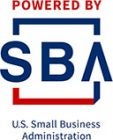At the RISBDC, we frequently get questions from businesses contemplating growth. A very common question is: Is my business ready to grow? RISBDC small business consultants Peter Conopask and Sandra McNamara weigh in.
While there are many different types of small businesses, each with different goals, there are a common set of qualities that each and every business contemplating expansion needs to have. The “right time” for this type of growth has nothing to do with how long you’ve been in business—it has to do with the foundation you’ve laid and the specific goals you have, not only for your business but for your role and your future in it.
This blog post will start out by defining the types of small businesses. We’ll talk about the features and objectives of each type, and then go on to describe the major pillars and qualities that need to be in place for startups to make a successful transition to second stage.
What kind of small businesses are there?
Does the term “small business” make you think of Shark Tank? Entrepreneurs vying to go public and become the next unicorn? While this is one type of small (not for long) business, these startups make up a fraction of American small businesses. The vast majority, more than 90%, fall into one of the categories below, and these types are the focus of this article.
- Hobby business
A hobby business is generally one done “on the side,” often for the enjoyment of the owner, and generally not intended to make a large income that the owner relies on to support him/her self. They are often part-time, rarely have regular employees, and may rise up quickly then be gone when the owner enters a new phase of life. Hobby business owners are sometimes retired or primarily supported by a partner for income and benefits. Examples of a hobby business might be photography, selling handicrafts, or baking cakes.
- Lifestyle business
A lifestyle business focuses on supporting its owner’s desired quality of life in the here and now: accommodating their preferred working schedule and bringing in enough money for their personal needs, whether $50,000 or $250,000. Lifestyle businesses are geared toward supporting preferred quality of life during the owner’s working years, rather than creating a structure in place to support them when they are not working—they generally require the owner to be present in order to keep making a profit. Examples of a lifestyle business could be an auto mechanic, a freelance writer, or a consultant.
- Startup
A true startup is a business that, in its initial phase, is not necessarily focused on profitability. Rather, it is seeking very high top-end (gross) revenues and focused on its growth potential. A major push in the initial phase is establishing processes and procedures that will enable the business to become a company that can scale up and achieve profitability for the founder even when they are no longer needed for daily operations.
What is an established business?
Whether a hobby, a lifestyle, or a startup, businesses getting off the ground are in the process of becoming a stable, long-term business. They are striving to attain a stable source of revenue, contain and solidify expenses, and define and attract their target market. An established business is one that has passed this initial phase to become stable and profitable—with an emphasis on stability. Established businesses are ongoing and have long-term value.
Hobby businesses and lifestyle businesses can become established in their stability and profit, bringing value to the owner, but they are generally not focused on second-stage expansion. Even growth such as bringing on employees or hiring help is often more about maintaining or improving the owner’s lifestyle, rather than becoming a different entity. If your startup business has goals that are objectively larger, read on to see if you’re ready.
What kind of growth are we talking about?
While a business is in its early phases, founders may be thinking about expanding their customers, increasing revenue, and achieving profitability and stability. Stabilizing income and establishing profitability are valuable and common goals, and are hallmarks of critical initial growth.
“Expansion” growth (what we’re talking about in the rest of this post) is taking your business to the next level. This could look like expanding into new markets, products, or services; reaching a new customer base; or vertically integrating part of the supply chain. Oftentimes, founders overlook these earlier hallmarks of initial, stabilizing growth because of their interest in expanding to the next stage.
Is your business ready to expand?
Truly scaling up a business requires a strong foundation of three pillars that must be in place before any attempted expansion can be successful: market, management, and money.
Is there a profitable market for your product or service?
Are the functional people (management) in place?
Do you have the money available, either within your cash reserves or by being bankable to borrow money or attract investors?
A business needs all three of these elements in place to contemplate expanding. It also needs to have a solid sense of its customers and target market, as well as what truly differentiates the products or services from its competitors and attracts clients to pay for it.
Characteristics of companies ready for expansion
In addition to the tangible pillars that a small business needs to grow into a company, these characteristics are equally important.
- Delegation
No company can move forward if its founder cannot delegate responsibility and tasks. In the initial phases, you may have worn all of the hats. Now, you must continually focus your efforts on the bigger picture, and move from working in the business to working on the business. Ultimately, the goal is for the founder to achieve a position where the business runs smoothly and remains profitable even when the founder removes themselves from day-to-day operations.
- Selectivity
Has the business ever turned down work? If a business is still saying yes to every customer that knocks on its door, it’s still a start-up. This focus on maximizing top end revenue prevents the business from truly defining who its specific, target customer is and refining processes to focus on quality of work. When a business is able to turn down work or fire a customer, it is operating in its sweet spot and paving the way for long-term stability and profitability.
- Mission
Successful long-term businesses are driven by a defined mission. They truly understand what they are doing at every level, and the mission is woven through every interaction within the company and with employees. This serves as a guiding star and stable foundation that all growth is built upon.
Is your business ready to grow? If so, email our Growth Hub expert Paul Harden for support and access to resources designed to help you take the next steps to second stage.




